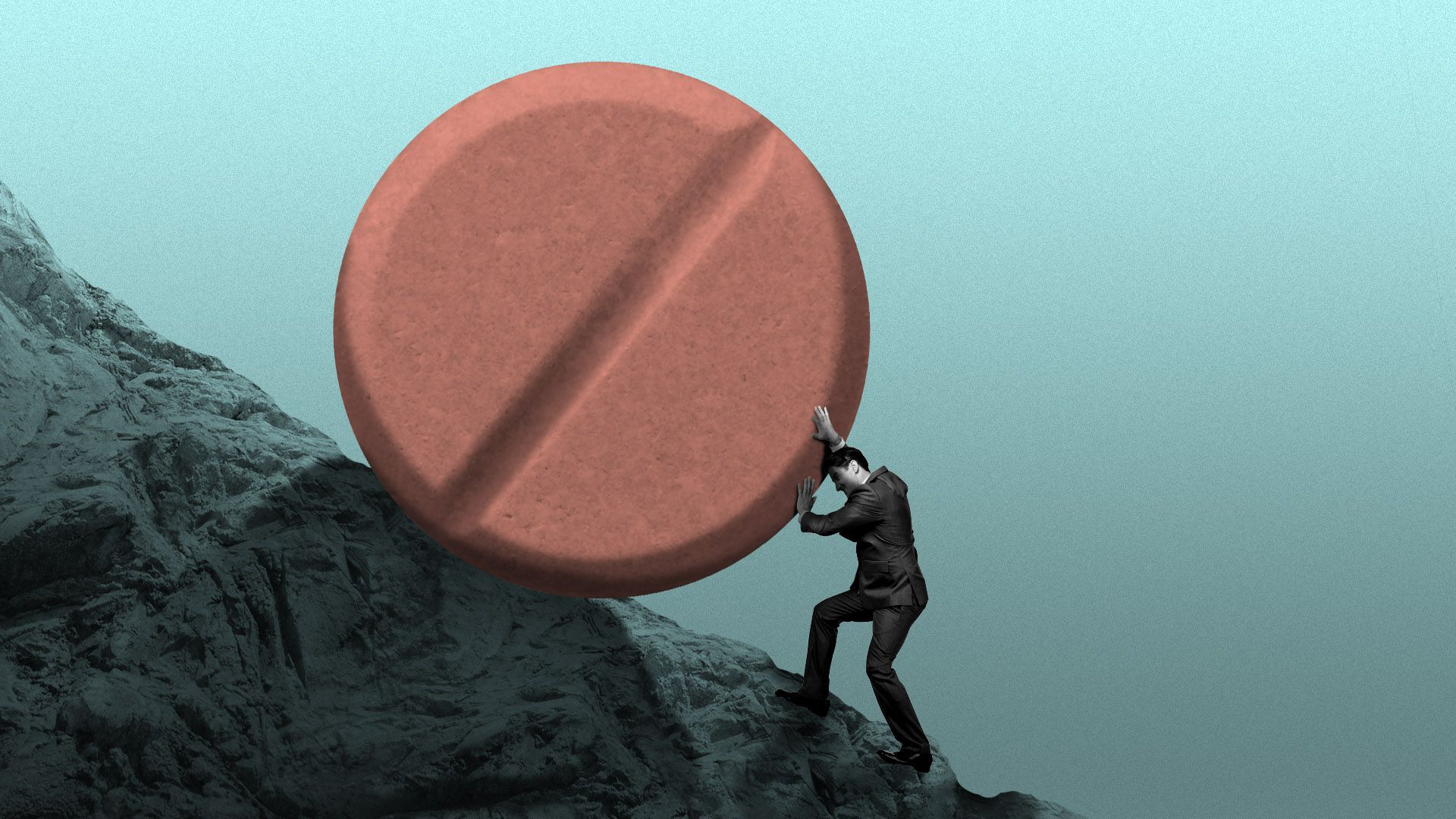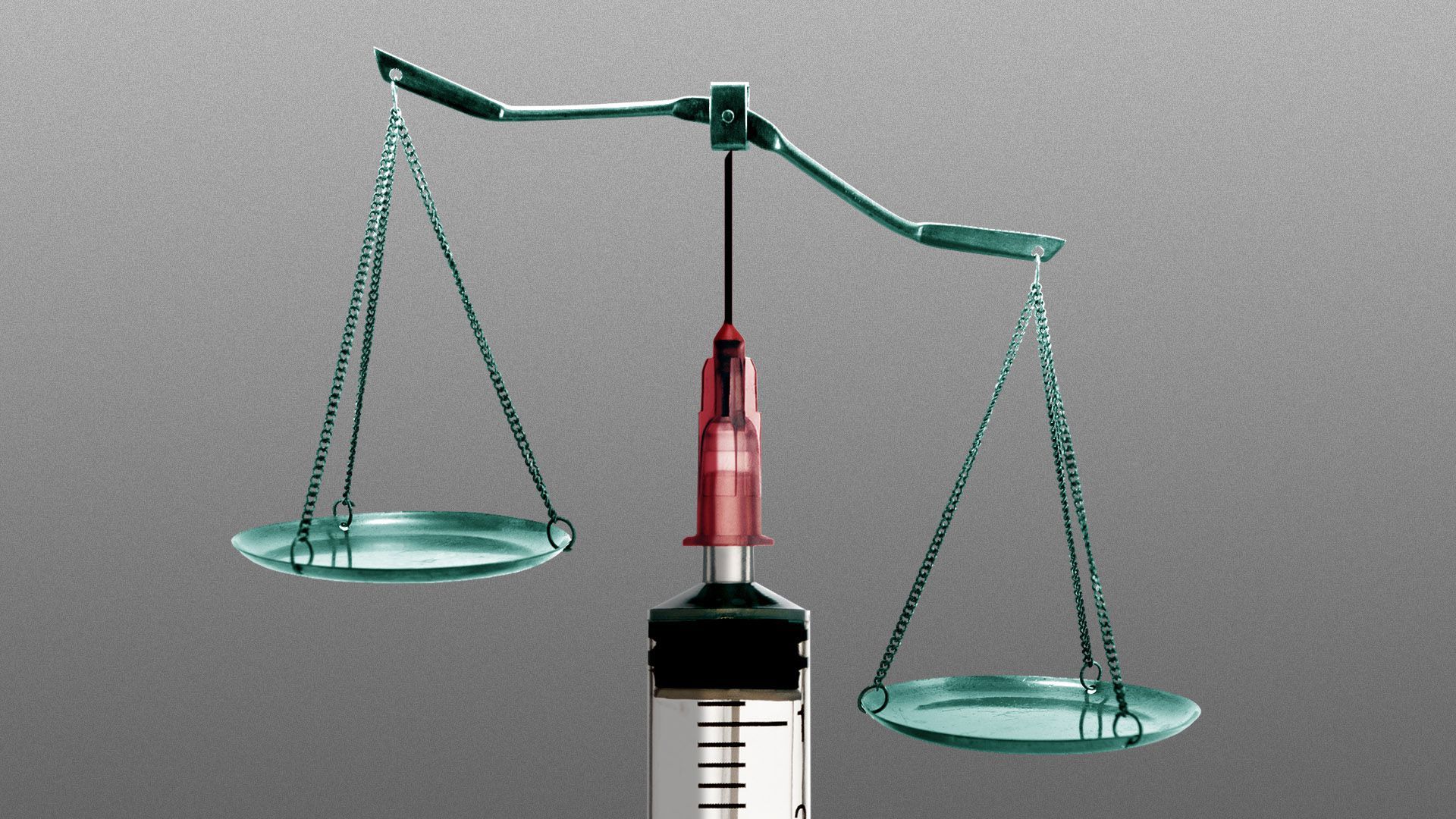| The success of Democrats' attempt to allow Medicare to negotiate prescription drug prices hinges on whether the drug industry can persuade voters — particularly seniors — that the policy would lead to fewer drugs, Axios' Caitlin Owens writes. Why it matters: Seniors are both directly impacted by the policy and disproportionately likely to vote in midterm elections, meaning what they think is incredibly influential. The big picture: Allowing Medicare to negotiate drug prices is, by itself, overwhelmingly popular with voters. But when polls ask whether people would support the measure if it results in fewer new drugs, support drops drastically. Yes, but: Experts say convincing the public that this tradeoff is real will be an uphill battle. State of play: The pharmaceutical industry and advocates for drug pricing reform alike are dumping millions of dollars into the messaging war. By the numbers: A KFF poll released in June found that 88% of respondents favor allowing the government to negotiate for lower drug prices, including 77% of Republicans, 96% of Democrats and 89% of adults 65 and older. - But if told the policy would limit people's access to newer drugs, 65% said they opposed the measure.
PhRMA cited this figure as a warning. - "Non-partisan, independent public polls have repeatedly demonstrated that support for government 'negotiation' evaporates once voters learn that these policies could result in restrictions in access to medicines or slow down innovation into new treatments for challenging conditions," the industry group recently wrote in a memo responding to a recent poll finding strong support for the policy.
The other side: "I think the counterpoint to that is that the drug industry has been making those arguments for a long time, and yet when you poll the public, it's still wildly popular," said KFF's Liz Hamel. Go deeper. | 







No comments:
Post a Comment